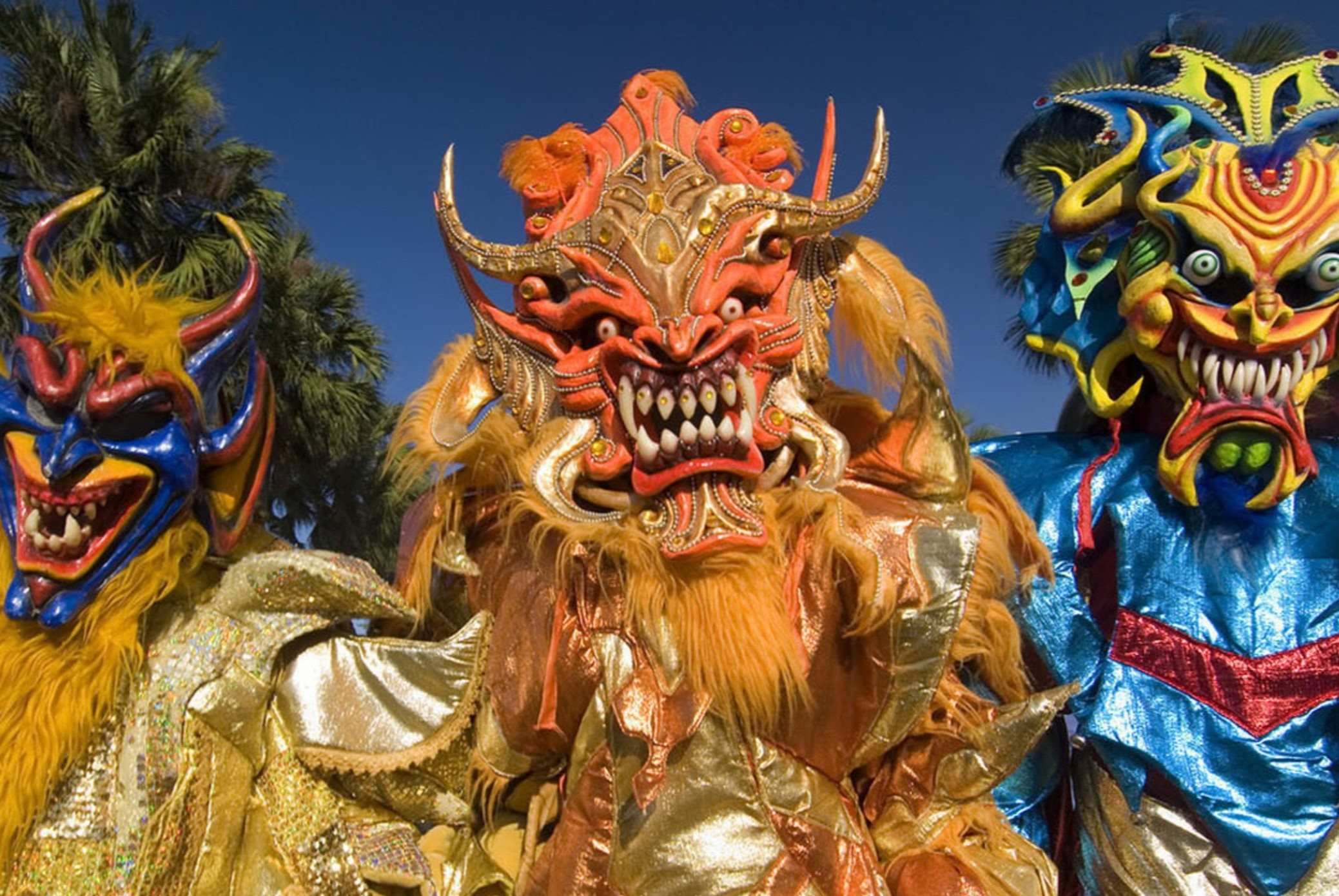Hidden Traditions Only Dominicans Truly Know

Ever wondered what makes the Dominican Republic so special? Beyond the stunning beaches and lively music, there are hidden traditions only Dominicans truly know. These customs shape daily life, bringing communities together in unique ways. From vibrant festivals to secret recipes passed down through generations, the culture here is rich and diverse. Imagine joining a local family for a traditional meal or witnessing a colorful parade that fills the streets with joy. Understanding these hidden traditions offers a deeper connection to the heart and soul of the Dominican Republic. Ready to dive into this fascinating world? Let's uncover the secrets that make this island nation so extraordinary.
Merengue and Bachata: The Heartbeat of Dominican Culture
Music and dance are integral to Dominican life. Merengue and Bachata are not just genres; they are expressions of joy, sorrow, and everything in between. These rhythms tell stories that words often can't.
Merengue Festivals: Every year, the Dominican Republic hosts vibrant Merengue festivals. Streets come alive with music, dance, and colorful costumes. Locals and tourists alike join in the festivities, dancing until dawn.
Bachata Dance Classes: Many Dominicans learn Bachata from a young age. Dance schools offer classes where you can master the steps and feel the passion behind the moves. It's a great way to connect with the culture.
La Bandera: More Than Just a Meal
La Bandera, meaning "The Flag," is a traditional Dominican dish that symbolizes the nation's pride. It's a staple in every household, representing the colors of the Dominican flag.
Daily Lunch Ritual: For many Dominicans, lunch isn't complete without La Bandera. This meal typically includes rice, beans, and meat, often accompanied by salad and fried plantains. It's a comforting, hearty meal that brings families together.
Cooking Classes: Some local chefs offer cooking classes where you can learn to prepare La Bandera. These classes provide insight into the ingredients and techniques that make this dish so special.
Carnaval Dominicano: A Burst of Color and Tradition
Carnaval Dominicano is a month-long celebration filled with parades, music, and elaborate costumes. Each region has its own unique way of celebrating, but the spirit of joy and community is universal.
Diablo Cojuelo Masks: One of the most iconic symbols of Carnaval is the Diablo Cojuelo mask. These devilish masks are handcrafted and painted in vibrant colors. They are worn during parades to ward off evil spirits.
Lechones of Santiago: In Santiago, the Lechones are a highlight of Carnaval. These characters wear colorful costumes and perform traditional dances. Their presence adds a unique flavor to the celebrations.
Coffee Culture: A Morning Ritual
Dominicans take their coffee seriously. It's more than just a beverage; it's a ritual that starts the day on the right note. Sharing a cup of coffee is a way to bond with friends and family.
Café Santo Domingo: This brand is a household name in the Dominican Republic. Many locals start their day with a cup of Café Santo Domingo, enjoying its rich, bold flavor.
Coffee Plantations: Visiting a coffee plantation offers a glimpse into the coffee-making process. You can see how beans are grown, harvested, and roasted, and even sample fresh coffee right on the farm.
Baseball: The National Passion
Baseball isn't just a sport in the Dominican Republic; it's a way of life. Many young Dominicans dream of becoming professional players, and the country has produced some of the best talent in Major League Baseball.
Local Baseball Games: Attending a local baseball game is a must. The energy in the stadium is electric, with fans passionately cheering for their teams. It's an experience that showcases the country's love for the sport.
Baseball Academies: Numerous baseball academies train young athletes, hoping to make it to the big leagues. Visiting one of these academies gives insight into the dedication and hard work that goes into becoming a professional player.
Religious Festivals: A Blend of Faith and Culture
Religion plays a significant role in Dominican life. Various religious festivals throughout the year reflect the country's deep-rooted faith and traditions.
Semana Santa: Holy Week, or Semana Santa, is one of the most important religious events. It includes processions, reenactments of biblical scenes, and special church services. The entire country comes together to observe this solemn occasion.
Fiesta de la Virgen de Altagracia: This festival honors the patron saint of the Dominican Republic. Pilgrims travel to the Basilica of Higüey to pay their respects and seek blessings. The event is marked by prayers, music, and traditional dances.
Unique Superstitions: Beliefs Passed Down Through Generations
Dominican culture is rich with superstitions and folklore. These beliefs, passed down through generations, add a mystical element to everyday life.
Mal de Ojo: The evil eye, or Mal de Ojo, is a common belief. Many Dominicans wear amulets or bracelets to protect themselves from negative energy and envy.
El Bacá: This mythical creature is said to bring wealth in exchange for a pact with the devil. Stories of El Bacá are often told to caution against greed and dishonesty.
Embracing Dominican Traditions
Dominican traditions offer a rich tapestry of culture, history, and community. From the vibrant Carnival celebrations to the soulful Merengue and Bachata music, these customs bring people together in joyous harmony. The La Bandera dish, with its rice, beans, and meat, is a staple that reflects the island's culinary heritage. Baseball isn't just a sport here; it's a passion that unites fans across generations. Religious events like Semana Santa showcase deep-rooted faith and devotion. Even the unique Dominican slang adds flavor to everyday conversations, making interactions lively and colorful. Understanding these traditions helps appreciate the Dominican Republic's unique identity. Whether you're visiting or just curious, these customs offer a glimpse into the heart and soul of the Dominican people. Embrace these traditions, and you'll find a deeper connection to this beautiful Caribbean nation.

